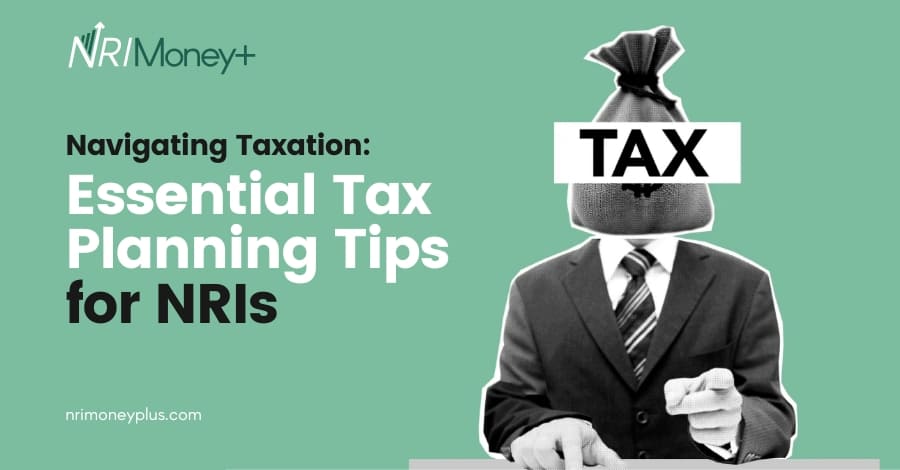Tax planning is a crucial aspect for Non-Resident Indians (NRIs) to ensure compliance with the tax laws of their home country while maximizing their financial gains. Understanding the implications of both the new and old tax regimes is essential for NRIs to make informed decisions regarding their investments and income. Additionally, it is important to be aware of the Goods and Services Tax (GST) on rental income from commercial property. In this article, we will explore the impact of the new and old tax regimes on NRIs and provide essential tax planning tips to help navigate the complex landscape of taxation.
1. The New and Old Tax Regime:
The Indian tax system underwent a significant change in recent years with the introduction of the new tax regime. Under the new regime, taxpayers have the option to choose between the old tax regime (with deductions and exemptions) and the new tax regime (with lower tax rates but limited deductions and exemptions). NRIs should carefully analyze their income and investments to determine which regime is more beneficial for them.
a) Impact of the New Tax Regime:
The new tax regime offers lower tax rates compared to the old regime but eliminates several deductions and exemptions. NRIs with significant investments in tax-saving instruments or those who have deductible expenses may find the old regime more advantageous. On the other hand, NRIs with lower deductions and exemptions may benefit from the lower tax rates offered by the new regime.
b) Impact of the Old Tax Regime:
The old tax regime allows for various deductions and exemptions, including those related to housing loans, insurance premiums, medical expenses, and investment in specific financial instruments. NRIs who have substantial deductible expenses or investments may find the old regime more beneficial. It is important to evaluate the available deductions and exemptions against one’s income to make an informed decision.
Also Read: Indian Passport Renewal in USA – Easy to Understand Guide (nrimoneyplus.com)
2. Goods and Services Tax (GST) on Rental Income from Commercial Property:
The introduction of the Goods and Services Tax (GST) has transformed the indirect tax landscape in India. GST is applicable to the supply of goods or services, including the rental income from commercial property.
a) GST on Commercial Property Rental Income:
Under GST regulations, commercial rental income is subject to tax if the total rental income from commercial properties exceeds the threshold limit of Rs. 20 lakhs per year. NRIs earning rental income from commercial properties in India must register for GST if their income exceeds this threshold. It is important to comply with GST regulations, including timely registration, filing of returns, and payment of GST liability.
b) Input Tax Credit:
One significant advantage of GST on rental income from commercial property is the availability of input tax credit. NRIs can claim the input tax credit for GST paid on inputs and services used in the production of rental income. It is crucial to maintain proper documentation and invoices to avail of input tax credit.
3. Essential Tax Planning Tips for NRIs:
3.1 Determine Residential Status: NRIs must determine their residential status for tax purposes as it affects their tax obligations in India. Understanding the criteria for being classified as a resident or non-resident is crucial for effective tax planning.
3.2 Plan Investments Wisely: NRIs should align their investment choices with the tax regime that suits them best. Analyzing the impact of deductions, exemptions, and tax rates under both regimes can help optimize their tax liabilities.
3.3 Evaluate Double Taxation Avoidance Agreements (DTAA): NRIs residing in countries with which India has a DTAA should explore the provisions of the agreement. DTAA can provide relief from double taxation and help avoid unnecessary tax burdens.
3.4 Utilize Tax-Saving Instruments: NRIs can explore tax-saving investment options available under both tax regimes, such as the National Pension System (NPS), Employee Provident Fund (EPF), and tax-saving fixed deposits. Assessing the benefits and drawbacks of these instruments can aid in making informed decisions.
3.4 Keep Purchase Invoices Organised: Maintain proper documentation and invoices for all transactions, especially for claiming the input tax credit under GST on rental income from commercial property.
3.5 Consult Tax Experts: Given the complexities of tax laws and their implications, NRIs should seek advice from qualified tax professionals or financial advisors specializing in NRI taxation. Their expertise can help optimize tax planning strategies and ensure compliance with relevant regulations.
Conclusion:
Navigating taxation as an NRI requires a thorough understanding of the new and old tax regimes and the implications they have on your financial situation. Assessing the benefits and drawbacks of each regime and staying compliant with GST regulations on rental income from commercial property is vital for effective tax planning. By following these essential tax planning tips, NRIs can optimize their tax liabilities and make informed decisions to safeguard their financial interests.

Donald G. is the Principal Consultant at NRI Money+. He specialises in creating personalised financial plans for NRIs (Non-Resident Indians) and HNI (High Net-worth Individuals).



